|
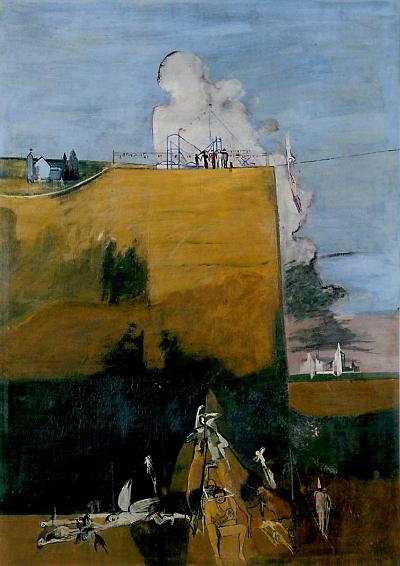
Walter Kurt Wiemken
1907 - 1940
_______________________
A Funeral In My Brain
Gail Wronsky
for Di Seuss
(the world a bell and we its ear) we hijacked worlds we governed ovens
we summoned lovers and fireworks out of the eternal mud of Niles
Michigan and then we were falling for so long through planks of work
children and weather now whether I’m out in the devil’s own desert or
under a sheltering eave somewhere even farther yonder it makes no
difference something mournful crawls in my brain marches in place
glides in circles or sometimes just loiters around in there like a big
carrion bird not singing it makes no difference which or whether
what’s being missed is your face or your grace our hallucinations or
idleness it makes (don’t know why it would) no difference we loved the
new seasons didn’t we sister we their eyes we their mothers wives
daughters drummers all the while not knowing there would be no end
after all that omnipotence to this private slow dying part of living.
Gail Wronsky
Pool Issue #10
_______________________
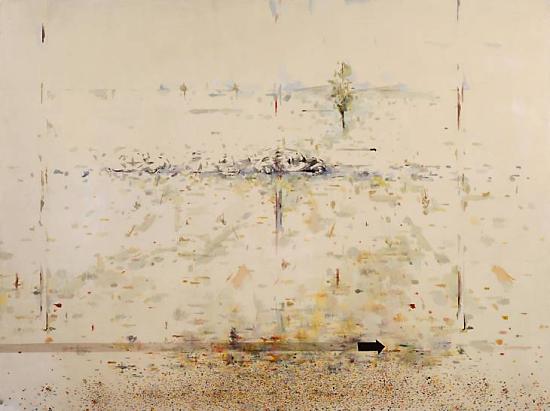
Trainsition IIII
1954
Richard Hamilton
1922 - 2011
_______________________
Draft 98: Canzone
Rachel Blau DuPlessis
(....)
Yet this part of the work remains closest to darkness.
The knowledge of yearning will not be complete.
There is no there; it’s all degrees of here.
Cannot touch them whom we are marked by.
But they are palpable and enter this place.
Be nomadic, nomad. Wander with the wanderers,
yet safe in the room. There is at once too much
and much too little. Wait it out.
“The bit of ugly, the glitch, the torn, the sweeper, the tender,
the constant reminder that things are being made, unmade
and tended”--you are now one part of all of this.
You will be it, help it, answer and feed that
surface of cries, chirps. You will call out.
Live in empathy. Let the agony be. Comfort it.
Reject the whole that someone claims is rule.
A hole, a line, a hold, a lie, a hope,
a hype will slide you through this most dangerous spot.
Resist only rectitudes, resist the crazed
and driven knowers. Find and replace.
Though the mechanism to depict this is
called documentary, still it needs the stinging
pulse of lines. This matches that.
All “ofness” exists
for much more Of.
The beyond moves to two places: here and there.
To achieve connection,
is there just one route of passage?
There is not.
...(more)
_______________________

Neolithic bowl, c 3500 BC
A History of Ireland in 100 Objects
Fintan O'Toole
Irish Times
_______________________
Finnegans Wake
Read by Patrick Healy
ubu

The Child Plants an Oak Tree
from "The Way of the Woodcut"
1959
Shiko- Munakata
d. Sept. 13, 1975
_______________________
Murphy
Samuel Beckett
The complete unabridged text. Narrated by Fionnula Flanagan, starring Colm Meaney (Mr. O'Brien of Star Trek: The Next Generation) as Murphy, and featuring 20 of the finest English and Irish voices in the world.
Written in English and later translated by Beckett into French, Beckett’s second novel was rejected by over forty publishers. Murphy is by its own admission a puppet show, in which Menippean characters with prodigious vocabularies deal with the absurd costs of living: insanity, lust, and love. Despite his stout Irish everyman’s name, Murphy himself is not a puppet, but a consciousness in crisis:
Murphy’s mind pictured itself as a large hollow sphere, hermetically closed to the universe without. This was not an impoverishment, for it excluded nothing that it did not itself contain. Nothing ever had been, was or would be in the universe outside it but was already present as virtual, or actual, or virtual rising into actual, or actual falling into virtual, in the universe inside it.
_______________________
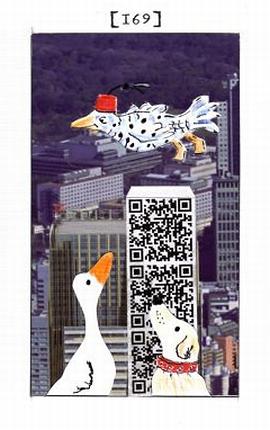
Emblem of My Work
To celebrate the 250th anniversary of Sterne's marbled page, which Sterne described as 'the motly emblem of my work', 169 artists and writers have been invited to design the Emblem of their own work.
Each contributor has generously donated the result to raise funds for the Laurence Sterne Trust.
_______________________
A Journey To Distant Planets
Fadhil al-Azzawi
We are prisoners of solitude as we travel to more distant planets. On the way with our spaceships our nostalgia is enough to lead us to our lost sons. After a while, we will leave the earth behind us. The hidden polar dawn follows the redness of the sunset, throwing its shadows over us as we enter its old orbit. And the nights sow darkness within us, ticking like huge clocks on the Equator; there we see a sparrow see-sawing through the storm and hear music playing for drunken dancers behind a closed door: We must not say too much after learning of metaphysics in the labyrinth of wandering spirits. Translucent stars hang in the ether, glowing.
Listen, Pushkin, no more white nights here after we lost all we had once won on our journey. What are you saying? I can't hear you. What are you saying? Speak up, even if no-one can ever hear you here! You should always look straight ahead to see the aeons passing by. Look! There's a man looking at us from the window, sitting on a chair, the two halves of him listening to the Big Bang, like a prince who calls up ghosts in the open air before casting his line into the river to hunt fish for eternity. Listen to the water's roar! The bell will toll soon and life will start over, like all the other times.
Three Poems
Fadhil al-Azzawi
Translated by the author
Twenty One Iraqi Poets
masthead Issue 9
_______________________

A Select Committee
Henry Stacy Marks
b. Sept. 13, 1829
_______________________
This mere word, spaced without space, affirming beneath all affirmation,
impossible to deny, too weak to be killed, too docile to be contained,
not saying anything, only speaking, speaking without living,
without voice, in a voice Iower than any voice.
-
Maurice Blanchot, L'Attente l'oubli
_______________________
Cinders
Jacques Derrida
Translated by Ned Lukacher
mediafire pdf
More than 15 years ago a phrase came to me, as though in spite of me; to be more precise, it returned, unique, uniquely succinct, almost mute. I thought I had calculated it cunningly, mastered and overwhelmed it, as if I had appropriated it once and for all.
Since then, I have repeatedly had to yield to the evidence : the phrase dispensed with all authorization, she had lived without me .
She, the phrase, had always lived alone.
The first time (was it the first time?), more than 15 years ago, at the end of a book, Dissemination, in the acknowledgments, where a book is dedicated, offered, rendered up to those who, known or unknown, have already given it to you in advance, the sentence in question imposed itself upon me with the authority, so discreet and simple it was, of a judgment: "cinders there are"(il y a là cendre) .
_______________________

Westport
photo - mw
_______________________
Info-Labour and Precarisation
Franco Berardi Bifo
Translated by Erik Empson
(....)
It's a strange word that with which we identify the ideology prevalent in the posthuman transition to digital slavery: liberalism. Liberty is its foundational myth, but the liberty of whom? The liberty of capital, certainly. Capital must be absolutely free to expand in every corner of the world to find the fragment of human time available to be exploitated for the most miserable wage. But liberalism also predicates the liberty of the person. The juridical person is free to express itself, to choose its representatives, to be entrepreneurial at the level of politics and the economy.
Very interesting, only that the person has disappeared, what is left is like an inert object, irrelevant and useless. (....)
How can we oppose the decimation of the working class and its systemic de-personalisation, the slavery that is affirmed as a mode of command of precarious and de-personalised work? This is the question that is posed with insistence by whoever still has a sense of human dignity. Nevertheless the answer does not come out because the form of resistance and of struggle that were efficacious in the C20th appear to no longer have the capacity to spread and consolidate themselves, nor consequently can they stop the absolutism of capital. An experience that derives from worker’s struggle in the last years, is that the struggle of precarious workers does not make a cycle. Fractalised work can also punctually rebel, but this does not set into motion any wave of struggle. The reason is easy to understand. In order for struggles to form a cycle there must be a spatial proximity of the bodies of labour and an existential temporal continuity. Without this proximity and this continuity, we lack the conditions for the cellularised bodies to become community. No wave can be created, because the workers do not share their existence in time, and behaviours can only become a wave when there is a continuous proximity in time that info-labour no longer allows....(more)
_______________________
Historically, as we have seen, ages of virtual, credit money have also involved creating some sort of overarching institutions - Mesopotamian sacred kingship, Mosaic jubilees, Sharia or Canon Law - that place some sort of controls on the potentially catastrophic social consequences of debt. Almost invariably, they involve institutions (usually not strictly coincident to the state, usually larger) to protect debtors. So far the movement this time has been the other way around: starting with the '80s we have begun to see the creation of the first effective planetary administrative system, operating through the IMF, World Bank, corporations and other financial institutions, largely in order to protect the interests of creditors. However, this apparatus was very quickly thrown into crisis, first by the very rapid development of global social movements (the alter-globalisation movement), which effectively destroyed the moral authority of institutions like the IMF and left many of them very close to bankrupt, and now bsy the current banking crisis and global economic collapse. While the new age of virtual money has only just begun and the long term consequences are as yet entirely unclear, we can already say one or two things. The first is that a movement towards virtual money is not in itself, necessarily, an insidious effect of capitalism. In fact, it might well mean exactly the opposite. For much of human history, systems of virtual money were designed and regulated to ensure that nothing like capitalism could ever emerge to begin with - at least not as it appears in its present form, with most of the world's population placed in a condition that would in many other periods of history be considered tantamount to slavery. The second point is to underline the absolutely crucial role of violence in defining the very terms by which we imagine both ‘society' and ‘markets' - in fact, many of our most elementary ideas of freedom. A world less entirely pervaded by violence would rapidly begin to develop other institutions. Finally, thinking about debt outside the twin intellectual straitjackets of state and market opens up exciting possibilities. For instance, we can ask: in a society in which that foundation of violence had finally been yanked away, what exactly would free men and women owe each other? What sort of promises and commitments should they make to each other?
-
David Graeber
Debt: The First 5,000 Years David Graeber pdf available at MonoskopTo Have Is to Owe
Mesopotamian usury, Vedic accounting, American Jubilee: excavating the history of fiscal debt.
David Graeber
Illustrations by Joanna Neborsky
Triple Canopy
Possibilities:
essays on hierarchy, rebellion and desire
David Graeber
google books
Fragments of an Anarchist Anthropology [pdf]
David Graeber
Prickly Paradigm #14
Constituent Imagination
militant investigations//collective theorization
By Stevphen Shukaitis, David Graeber, Erika Biddle
google books
Beyond Power/Knowledge [pdf]
an exploration of the relation of power, ignorance and stupidity
David Graeber
This essay is not, however, primarily about bureaucracy—or even about the reasons for its neglect in anthropology and related disciplines. It is really about violence. What I would like to argue is that situations created by violence—particularly structural violence, by which I mean forms of pervasive social inequality that are ultimately backed up by the threat of physical harm—invariably tend to create the kinds of willful blindness we normally associate with bureaucratic procedures. To put it crudely: it is not so much that bureaucratic procedures are inherently stupid, or even that they tend to produce behavior that they themselves define as stupid, but rather, that are invariably ways of managing social situations that are already stupid because they are founded on structural violence. I think this approach allows potential insights into matters that are, in fact, both interesting and important: for instance, the actual relationship between those forms of simplification typical of social theory, and those typical of administrative procedures.
_______________________
Endless Political Paralysis: The New Normal?
Sam Pizzigati
(....)
The United States currently sports a significant population of wealthy people who don’t use and don’t feel they need public services. These wealthy don’t send their kids to public schools. They relax in private country clubs, not public parks. They never ride public transportation or borrow books from public libraries.
Over time, these wealthy come to bitterly resent having to pay for services they never use. The wealthy back in America’s more equal 1950s and 1960s harbored these resentments, too. But those wealthy didn’t have the critical mass — or personal fortunes grand enough — to translate resentment into domineering political power. Today’s wealthy do....(more)

photo - mw
_______________________
Stevens Astride The Hemispheres
Richard Hoffman
from Without Paradise
— for Thom Salmon
Mnemosyne upreared amid atrocity concurs:
this looking backward is a not so accidental
death and dismemberment policy after all,
appended to one’s life and health; however,
squat caryatids, resentful though proud,
agree that, whether a bequest or metaphor
(those fixed, equivocating lions), history
is more than books and books of big stuff and
(roaring leonisimus or sleeping as you pass)
requires no notice in advance to change the plan.
...(more)
_______________________

Watermelon Peels
Remains
Moscow
Sasha Rudensky
2004
_______________________
Image and Narrative - Memory Screens
Introduction
Teresa Forde
The concept of memory screens is an overarching term exploring the relationship
between forms of media, viewers, practitioners and memory. The notion of memory
screens alludes to the ways in which memories become remembered, layered,
forgotten and transformed. The range of articles in this volume reflects the
relationship between memory and history, both public and personal.
_______________________
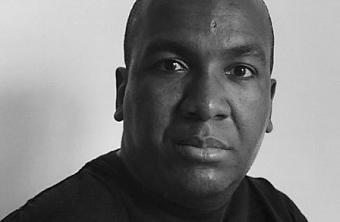
Reginald Shepherd
(April 10, 1963 – September 10, 2008)
Hesitation Theory
Reginald Shepherd
I drift into the sound of wind,
how small my life must be
to fit into his palm like that, holly
leaf, bluejay feather, milkweed fluff,
pin straw or sycamore pod, resembling
scraps of light. The world
slips through these fingers
so easily, there’s so much
to miss: the sociable bones
linked up in supple rows, mineral
seams just under the skin. I hold
my palm against the sun and don’t see
palm or sun, don’t hold anything
in either hand. I look up, look
away (what’s that?), I trip
and stumble (fall
again), find myself face down
in duff, a foam of fallen live oak
leaves, with only
this life, mine at times.
.....................................................
Only in the Light of Lost Words
Can We Imagine Our Rewards
Some Trees (1956)
Reginald Shepherd
conjunctions
As I reread the book’s title poem, it seems to me in many ways a response to Wallace Stevens’s “The Snow Man.”
(....)
We behold some trees and they mean to us, we hear some wind and it means to us. We are not snow men. In Stevens’s poem, what we see is the burden the bare trees bear, but also the beauty of that burden: cold pastoral. What we hear in the wind’s sound, in the sound of the leaves the wind carries and drops, carries and drops, is misery. One must have a mind of winter not to hear it, and who has such a mind? Not the speaker of this poem. In Ashbery’s, we see those trees and somehow hear them too. They mean, but what they mean is the possibility of joy: “soon / We may touch, love, explain.” Not now, and not certainly, but we may, and we may soon. (This seems a bright and sunny winter morning, cold but invigorating.) The words that issue from nature’s pillars are after all confused, but that’s to be expected when speech has become a still performance, or rather, when it is as though a still performance were speech, as though speech had become such a tableau vivant.
(....)
The silence is already filled with noises (the noise of the wind, perhaps, of a few leaves in the wind, some leaves). The world around us, this little piece of it, this place in which we have arranged to find ourselves, to meet one another and our world by chance, is “A canvas on which emerges / A chorus of smiles” (the synesthesia is, I think, deliberate, the speech of a still performance, some trees’ soundless urgings). It is “a winter morning, / Placed in puzzling light”: we can experience but never wholly understand the world; the light discloses but does not explain. And it is moving: we are moved, whoever we are this morning, but the world is moving too, life is all motion. “Minute by minute they change,” writes Yeats; and Stevens reminds us that the blackbird whirling in the autumn winds (so close to winter, yet so far) is just a small part of the pantomime. The days are reticent, at least our days are reticent—or rather, our days have put on such reticence (the reticence that tells us so much once we choose to really listen, so much we have not invented but we have definitely interpreted). We may soon touch, love, explain (all these things that trees can’t do, not some trees, not any trees), but when we don’t know, or even if these things will happen at all. Right here, right now, these implications, innuendos, inflections of morning light seem sufficient: “These accents seem their own defense.” What else can be expected of the world but hints? That the world should speak at all, however reticently, in however puzzling a winter morning light, is enough, is amazing indeed....(more)
_______________________

I Lock my Door Upon Myself
1891
Fernand Khnopff
b. Sept. 12, 1858
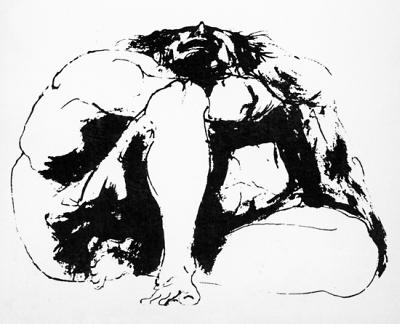 cover
Cioran's The Temptation to Exist
Leonard Baskin
1922-2000
_______________________
Inscription on the Flyleaf of a Bible
Dannie Abse
for Larne
Doubting, read what this fabled history teaches,
how the firework, Imagination, reaches high
to dignify and sanctify.
You need not, granddaughter, be religious
to learn what Judges, Kings, Prophets, yield,
thought-lanterns for Life’s darker field,
moral lies of piety and poetry.
You need not, granddaughter, hosanna heroes:
this wily shepherd, that bloodthirsty tough;
yet applaud the bulrush child
who, when offered gold, chose the coal.
Satisfied, the tyrant Pharaoh smiled,
did not see the pattern in the whole.
Forgive the triumphalism and the pride,
forego the curses and the ritual stuff.
You, older, I hope, will always side
with the enslaved and hunted,
deride the loud and lethal crowd
who vilify and simplify.
What is poetry but the first words
Adam, amazed, spoke to Eve?
On the first page of Genesis
hear the next to Nothing.
Later sound-effects, God off-stage, or theurgic stunts,
(water from a rock, a bush ablaze) might deceive
but bring ladders only to nerveless heaven.
Better to walk with Jephthah’s luckless daughter
among real hills. And grieve.
Enjoy David’s winging gifts to praise;
Solomon’s rapturous serenade; also Job’s
night-starred elegance of distress -
though such eloquence can bless,
indiscriminately, the last flags of the just
and the unjust on the barricade.
Three Poems
from Arcadia, One Mile
Dannie Abse
Archipelago
Volume 2 Number 4
_______________________
The Philosophy of 'As If'
A System of the Theoretical, Practical and Religious Fictions of Mankind
Hans Vaihinger
1852 - 1933
translated by C. K. Ogden
mediafire pdf
_______________________

Konigsberg shades
Boris Register
_______________________
Of course it serves its purposes. There's nothing like a carefully-cultivated sense of victimhood to make people cruel -- if only vicariously cruel; but hey, the world-bestriding thug state will take whatever buy-in it can get.
-
Michael J. Smith
_______________________
The objective of the economic class war has always been simplicity itself: inequality, the greater the better. And it’s working like a charm. In the United States, and to a growing extent in Canada, it is now politically impossible ever to discuss the need to raise taxes, even on the filthy rich, in order to sustain any kind of positive government.(....)
There are more filthy rich folks now than at any other moment in history and they’re leveraging their astounding wealth to make sure they get filthier at the expense of the rest of us, still of course the vast majority. What is true of America is equally true of Britain and increasingly true of Canada. While the middle class shrinks, the working class slips backwards and social mobility erodes, the rich buy themselves politicians, lobbyists, legal beagles, slick accountants, “trained economists,” television networks, “think” tanks and whatever other apparatus is needed to make them even richer. Their success surpasses even the most piggish of expectations.
Osama bin Laden inflicted a terrible crime on the American people. America’s elites and their allies have done the rest.
- Gerald Caplan
_______________________
"The Game is Up": Unrest, Policing and the War on the Underclass
Aaron Peters
(....)
While there has been a speeding up of the state of exception in light of the English Riots, with curfews on youngsters being touted and bans on individuals with criminal records entering certain cities, it is perhaps best to view the current state of affairs as an extension of the same norms which informed the 2000 Terrorism Act and the subsequent CONTEST and PREVENT strategies that were intended for radical islamism in the immediate aftermath of 9/11. Thus, rather then seeing marked paradigm shift in policing towards British citizens what we are instead witnessing is a continuation and escalation in the state of exception with the role of radical islamist as 'extremist other' being replaced and held alongside those groups perceived as primary participants within the riots, the long-term unemployed, poorer inner-city BME communities and NEETS (youths aged 16-24 not in education, employment or training).
As Our Kingdom co-editor, Guy Aitchison, wrote on Twitter “With the 10 year anniversary of 9/11, following on so closely from the English riots, we are witnessing the end of the "War on Terror" and its replacement by the "War on the Underclass" as the governing paradigm of state-authoritarian technocracy. Under this new scheme, the hoodie replaces the jihadi as the hostile internal Other.” I am inclined to agree.
(....)
Ten years after 9/11, the 'War on Terror' is being replaced by a 'War on the Underclass'. In a post-growth Britain where the global financial crisis is being recognised as something more akin to Japan's lost decade(s) rather then a temporary blip it should come as no surprise that we see a return to the semantics of the 'enemy within' albeit within a fundamentally new and intensified form....(more)
_______________________
The 9/11 Decade: America Astray
democracy journal
Issue #21, Summer 2011
The Politics of Fear
Corey Robin
(....)From these polar realities—a thinning atmosphere of political fear, an expanding infrastructure of political fear—I draw two conclusions. First, the politics of fear is far less dependent upon the actual psychic experience of the public than analysts would have us think. While many believe that the individual emotions of the citizenry propel the policies the government pursues, I see little evidence of that. Even if we assume that each and every member of the public is experiencing fear, that experience still doesn’t explain the policies. A frightened population could just as easily inspire the government to pursue policies that would dampen rather than arouse fear. It is politics that produces policies, not fear.(....)
Second, journalists and scholars too often assume that the public is united in its fear because the objects of fear—terrorism, radical Islam, and so on—are equally threatening to each and every member of the public. But as Hobbes understood so well, men and women do argue about political threats—whether they exist, whom they threaten, whence they come, how to respond to them. They argue about political threats for the same reason they argue about other political matters: Perceptions of harm are dependent upon beliefs about good and evil, justice and injustice, and experiences of harm are mediated by material factors such as one’s standing in the world.(....)
A unity of fear, then, is not an artifact of mass psychology; it is a political project, crafted through leadership, ideology, and collective action. Like many political projects, it often fails, or at least does not fully succeed. And when it fails—dissenters question whether we need be afraid, citizens cease to pay attention to “orange” and “red” alerts, parties focus on other items of public concern—governments either try to enlarge the infrastructure by insulating it against the vagaries of public opinion, or dampen the dissent. Again, old-fashioned politics.
Since 9/11, we’ve gotten used to the phrase “the politics of fear.” It’s high time we started taking the politics part more seriously....(more)
_______________________
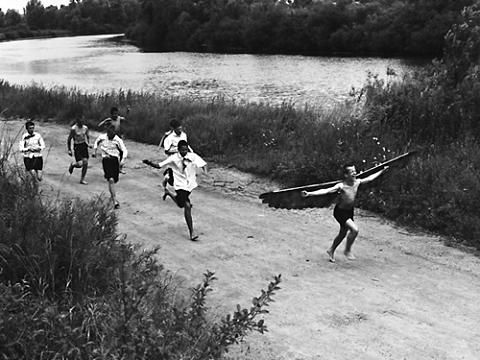
Boris Register
New Russian Contemporary Photography
43 Artists
selection and text by
Jim Casper
lens culture
_______________________
The Erotic Life Of Art:
A Séance with William Carlos Williams
Eileen R. Tabios
“the derivation of the adjective venereal is from Venus!...I was stunned!”
—Dr. William Carlos Williams
Perhaps it was the mysterious Chinese
girl, “bedbug-like in character,” who
slipped syphilis to Van Gogh
in Antwerp. After the painter cut off
his ear, a psychologist speculated over
how the Dutch word for ear—lel—
sounds like the Dutch slang word for penis—
lul. When memory is dominated
by fear, have you noticed how it is not
fear but Terror? How to perceive the shift
of stars without feeling them fade or fall?
...(more)
octopus 14
_______________________
 Precisely the least, the softest,
lightest, a lizard's rustling,
a breath, a flash, a moment
- a little makes the way of the best happiness.
The Nietzsche Family Circus via
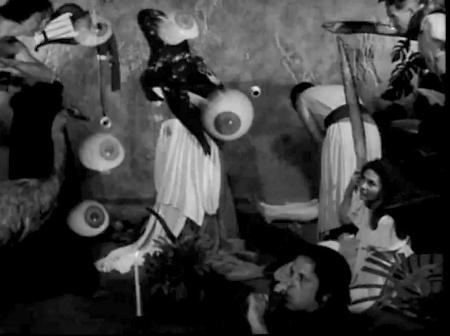
La femme 100 tźtes
Director: Eric Duvivier
(1967)
ubu film
19 mins
"This is an adaptation of Max Ernst's collage book "La femme 100 tźtes", originally published in 1929.
The book consists of surrealist images, with a little legend, yet the story depends on the ability of the reader to interpret the collages, and does not rely on the legends.
It may be encouraged to view the film as a collage in motion."
_______________________
The Book Collection That Devoured My Life
Luc Sante
Many books are screwy, a great many are dull, some are irredeemable, and there are way too many of them, probably, in the world. I hate all the fetishistic twaddle about books promoted by the chain stores and the book clubs, which make books seem as cozy and unthreatening as teacups, instead of the often disputatious and sometimes frightening things they are. I recognize that we now have many ways to convey, store, and reproduce the sorts of matter that formerly were monopolized by books. I like to think that I'm no bookworm, egghead, four-eyed paleface library rat. I often engage in activities that have no reference to the printed words. I realize that books are not the entire world, even if they sometimes seem to contain it. But I need the stupid things....(more)
_______________________

César-Antechrist
1895
Ubu's Almanac: Alfred Jarry and the Graphic Arts
Spencer Museum of Art
Idle Idols: Alfred Jarry
Mark Sanders
From Idler 17, November 1996
Alfred Jarry: Absinthe, Bicycles and Merdre
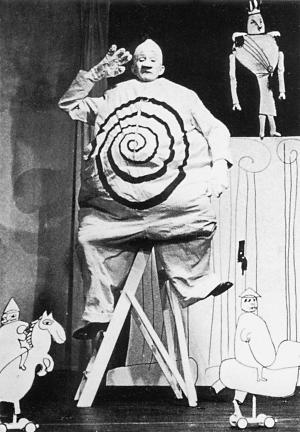
King Ubu
Alfred Jarry
b. Sept. 8, 1873
Marionetteatern 1964
Michael Meschke
© Photo: Beata Bergström
Exploits & Opinions of Dr. Faustroll, Pataphysician
Alfred Jarry
Translated by Simon Watson Taylor
pdf available at seedy
_______________________
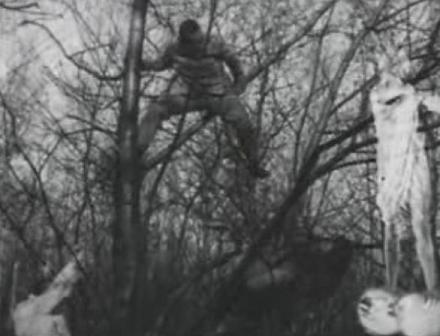
La femme 100 tźtes
Eric Duvivier
_______________________
Media Disruption Exacerbates Revolutionary Unrest:
Evidence from Mubarak’s Natural Experiment
Navid Hassanpour
Abstract:
Conventional wisdom suggests that lapses in media connectivity - for example, disruption of Internet and cell phone access - have a negative effect on political mobilization. I argue that on the contrary, sudden interruption of mass communication accelerates revolutionary mobilization and proliferates decentralized contention. Using a dynamic threshold model for participation in network collective action I demonstrate that full connectivity in a social network can hinder revolutionary action. I exploit a decision by Mubarak's regime to disrupt the Internet and mobile communication during the 2011 Egyptian uprising to provide an empirical proof for the hypothesis. A difference-in difference inference strategy reveals the impact of media disruption on the dispersion of the protests. The evidence is corroborated using historical, anecdotal, and statistical accounts.
Social Science Research Network (SSRN)
_______________________

La femme 100 tźtes
Eric Duvivier
_______________________
The Privatisation of Stress
Mark Fisher
(....)The privatisation of stress is a perfect capture system, elegant in its brutal efficiency. Capital makes the worker ill, and then multinational pharmaceutical companies sell them drugs to make them better. The social and political causation of distress is neatly sidestepped at the same time as discontent is individualised and interiorised. Dan Hind has argued that the focus on serotonin deficiency as a supposed `cause’ of depression obfuscates some of the social roots of unhappiness, such as competitive individualism and income inequality. Though there is a large body of work that shows the links between individual happiness and political participation and extensive social ties (as well as broadly equal incomes), a public response to private distress is rarely considered as a first option. It is clearly easier to prescribe a drug than a wholesale change in the way society is organised. Meanwhile, as Hind argues, `there is a multitude of entrepreneurs offering happiness now, in just a few simple steps’. These are marketed by people `who are comfortable operating within the culture’s account of what it is to be happy and fulfilled’, and who both corroborate and are corroborated by `the vast ingenuity of commercial persuasion’.
Psychiatry’s pharmacological regime has been central to the privatisation of stress, but it is important that we don’t overlook the perhaps even more insidious role that the ostensibly more holistic practices of psychotherapy have also played in depoliticising distress. The radical therapist David Smail argues that Margaret Thatcher’s view that there’s no such thing as society, only individuals and their families, finds `an unacknowledged echo in almost all approaches to therapy’. Therapies such as Cognitive Behaviour Therapy combine a focus on early life (a kind of psychoanalysis-lite) with the self-help doctrine that individuals can become masters of their own destiny. Smail gives the immensely suggestive name magical voluntarism to the view that `with the expert help of your therapist or counsellor, you can change the world you are in the last analysis responsible for, so that it no longer cause you distress’.
The propagation of magical voluntarism has been crucial to the success of neoliberalism; we might go so far as to say as it constitutes something like the spontaneous ideology of our times. Thus, for example, ideas from self-help therapy have become very influential in popular television shows. The Oprah Winfrey Show is probably the best-known example, but in the UK programmes such as Mary, Queen of Shops and The Fairy Jobmother explicitly promote magical voluntarism’s psychic entrepreneurialism: these programmes assure us that the fetters on our productive potentials lie within us. If we don’t succeed, it is simply because we have not put the work in to reconstruct ourselves.
The privatisation of stress has been part of a project that has aimed at an almost total destruction of the concept of the public - the very thing upon which psychic well-being fundamentally depends. What we urgently need is a new politics of mental health organised around the problem of public space. In its break from the old stalinist left, the various new lefts wanted a debureaucratised public space and worker autonomy: what they got was managerialism and shopping....(more)
_______________________
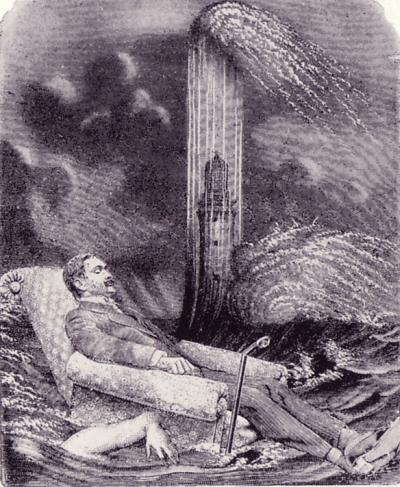
Spiritual repose
La Femme 100 Tźtes
collage-novel
1929
Max Ernst
large scans from the sorely missed Giornale Nuovo
1 2
_______________________
To set the lost afire: The Roving Shadows by Pascal Quignard
Steve Mitchelmore
(....)
The structure of The Roving Shadows – 55 chapters in 223 pages, with the chapters themselves divided into fragments of story, aphorism, anecdote, reference and citation – plunges the reader into open water in which one can never fully breathe nor fully drown in the comforts of narrative: “Fish that still rise to the surface”, he writes. “A gulp to stave off death. That gulp: reading.” The hyperbole is a necessary misstep of the form, as David Shields’ Reality Hunger confirmed in 2010, and the two books share the goal of overcoming their book misfortune: “Books that can be said to be touched by the reflection of the sun, of which they know nothing, are even more silent than purely literary ones.” (....)
...The Roving Shadows is in constant battle with its own accomplishment. After all, by writing in commonly intelligible French to a contemporary audience about ways of feeling which no longer exist, translated and contextualised in notes at the end of the book, he has also endangered them; risking exposure of the pale beast to imperial neon light. Chris Turner’s translation, which has to accept the impossibility of containing the double meaning of ombre – both shadow and shade – is thus a double threat. ...(more)
The Roving Shadows Pascal Quignard Translated by Chris Turner
_______________________

The memory of walls
Studiolum
Poemas del rķo Wang
_______________________
13 Poems
Georg Trakl
translated by Parker Smathers
Ruh and Schweige
Shepherds buried the sun
in the barren woods.
A fisherman pulled
The moon from a freezing pond
with a net made of hair.
The pale man lives
In blue crystal, resting
his cheek on the stars;
Or he bows his head
into purple sleep.
Yet the dark bird migration
stirs the bird watchers forever;
the Saint of the Blue Flowers
Believes in the intimate stillness of
Forgetfulness, his dying angel.
Again he beds his brow against
the moonlit stones;
Sister seems
A radiant youth amid autumn’s
black decay.
...(more)

Distant Relations
Lori Grinker
Nailya Alexander Gallery
via
Lori Grinker Photography
_______________________
From Trans-Atlantyk
Witold Gombrowicz
Translated by Danuta Borchardt
I feel the need to convey to my Family, to my friends and kinfolk, this the beginning of my adventures, now ten years old, in the Argentinean capital. I’m not inviting anyone to eat these old noodles of mine, or this turnip that may even be raw, because they’re in a pewter bowl, Lean, Paltry, and embarrassing to boot, cooked in the oil of my Sins, my Embarrassments, these my heavy grits, Dark, together with this black porridge of mine, oh, better not put them into the mouth, unless it’s for my eternal damnation and degradation, on my Life’s unending road, up this arduous and wearisome Mountain of mine....(more)
TWO LINES Online 2011
Center for the Art of Translation
_______________________
Toothpaste Kids Sunburn
Jordan Davis
I tell you I will not make any more raids,
The elusive going-elsewhere motherboard
An electrical sound marking stretches
Afternoon is carving into the wood of us,
...(more)
Jordan Davis' Equanimity
_______________________

photo - mw
_______________________
LINEbreak: Bruce Andrews, New York City 1995
transcript
I think a lot of what I experience in this genteel writing that you mentioned earlier is the cage of genre with its own built-in institutional trappings. As somebody that comes to all of this writing possibility not as an eager creative writing workshop graduate, English major, English grad student, or English professor person, those genre constraints and genre mobilizations never really fascinated me all that much. Given the absence of that kind of training, I never was really easily able to understand why other people were so fascinated by it or were so willing to take it as an absolute limit. Things that I read, sometimes maybe more varied, sometimes maybe more distractedly, sometimes as an elaborate interweaving of different things happening at the same time, or happening one after the other, or in layers or extended concentric circles of possibility, all that stuff doesn’t seem to have much to do with what I think of poetry as a genre. One thing I’ve tried to do, and one thing I’m interested in doing, is opening up the possibilities of writing in language that are disrespectful of genre boundaries and constraints....(more)
.....................................................
Strike Me, Lightning
Bruce Andrews
(....)
C. 2.
stars, little words
hothouse acrostics
circumferential circumstance
gobbling turkeys
of the Guadalupana
friend forever
your hands are translating me
vamos, muchacha
no solo
say you are not mine
two heads on one neck
what can we peel off
the power of the verb
hope hurts
...(more)
_______________________
17 seconds
( : a journal of poetry and poetics )
Third Issue: Summer 2011
An irresponsible act of imaginative license
Derek Beaulieu
Building upon my “Pulled from my Shelves” series which I recently completed for Sina Queyras’s Lemon Hound site (indexed here) this “an irresponsible act of imaginative license” series will explore concrete and conceptual literary projects. These occasional columns will be a place for discussion (and I encourage comments), reviews and interviews around books that I think deserve increased attention.
“Ever tried. Ever failed. No matter. Try Again. Fail again. Fail better.” – Samuel Beckett The traditional poetic impulse is a refutation of language’s inherent failures. It is the attempt to make language perform the impossible; to lucidly reconnoiter the ineffable. Metaphorical language is an acknowledgement of language’s inherent downfall. Language is too tied to thingness, to objects and gestures (as Robbe-Grillet argues) to plumb the depths of the “human soul.” This is not to say that metaphorical language does not have moments of beauty and grace, but those moments are the result of a larger failure. As poets, we attempt to bend language to our lyrical will. What results is inevitably a failure, but the poem lies in the degree to which the poem fails....(more)
_______________________
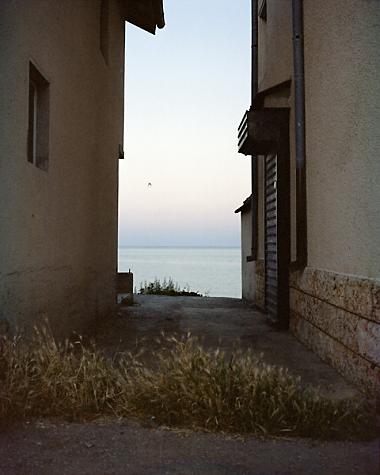
Eventually
Marten Boswijk
via
_______________________
The Responsibility of Intellectuals, Redux
Using Privilege to Challenge the State
Noam Chomsky
boston review
In 1967, writing about the deceit and distortion surrounding the American invasion of Vietnam, I discussed the responsibility of intellectuals, borrowing the phrase from an important essay of Dwight Macdonald’s after World War II. With the tenth anniversary of 9/11 arriving, and widespread approval in the United States of the assassination of the chief suspect, it seems a fitting time to revisit that issue. But before thinking about the responsibility of intellectuals, it is worth clarifying to whom we are referring....(more)
_______________________
The Lessons of Disasters
A Historical Critique of Postmodern Optimism
Jean-Baptiste Fressoz
Books & Ideas
(....)
Where does this optimism come from? Besides the millenarian tradition so deeply embedded in our representations of disasters, and the progressive faith in our ability suddenly to transform our habits of thinking and living, what emerges in the post-Fukushima articles is in fact a common version of the theory of postmodernity. Since the 1980s, social theory has treated technological disasters as symbols or precursors of an immense historical break: a break with the project of technical mastery of the world, with the idea of progress, with the disregard of nature, with consumerism – in short, a break with everything characteristic of modernity. Disasters occupy an essential place in the narrative of postmodern insights, because they represent a moment when an involuted modernity confronts its own creations....(more)
Books and Ideas
_______________________
The New Idolatry:
Religious Thinking in the Un-Commonwealth of America
Eric L. Santner
(....)What is most bizarre in the current situation is the way in which the Republicans have fused this "Protestant ethic," as Weber called it, with a sort of polytheistic worship of wealth and the wealthy—in short, with a rather blatant form of idolatry. Why does the beast need to be starved? Why does the "flesh" of the body politic need to be reduced, reduced, reduced? The answer we hear over and over again is: for the sake of the "Job Creators." The one Creator God has effectively been dispersed into the pantheon of new idols, those to whom we must all sacrifice so that they may show favor on us and create new worlds of economic possibility. Job creation has become the new form of grace or gratuitousness otherwise reserved for divinity. Our duty is to make sacrifices and above all to be vigilant about not calling forth the wrath of the Job Creators lest they abandon us and elect others as their chosen people (other nations who make bigger and better sacrifices)....(more)
_______________________
Goodbye to All That: Reflections of a GOP Operative Who Left the Cult
Mike Lofgren
_______________________

photo - mw
_______________________
Curating Immateriality: the Work of the Curator in the Age of Network Systems
DATA browser #03; edited by Joasia Krysa
published by Autonomedia
The site of curatorial production has been expanded to include the space of the Internet and the focus of curatorial attention has been extended from the object to processes to dynamic network systems. As a result, curatorial work has become more widely distributed between multiple agents, including technological networks and software. This upgraded ‘operating system’ of art presents new possibilities of online curating that is collective and distributed - even to the extreme of a self-organising system that curates itself. The curator is part of this entire system but not central to it.
The subtitle of the book makes reference to the essay “The Work of Culture in the Age of Cybernetic Systems” (1988), in which Bill Nichols considered how cybernetics transformed cultural production. He emphasised the shift from mechanical reproduction (symbolised by the camera) to that of cybernetic systems (symbolised by the computer) in relation to the political economy, and pointed to contradictory tendencies inherent in these systems: “the negative, currently dominant, tendency toward control, and the positive, more latent potential toward collectivity”. The book continues this general line of inquiry in relation to curating, and extends it by considering how power relations and control are expressed in the context of network systems and immateriality.
In relation to network systems, the emphasis remains on the democratic potential of technological change but also the emergence of what appears as more intensive forms of control. Can the same be said of curating in the context of distributed forms? If so, what does this imply for software curating beyond the rhetoric of free software and open systems? .....................................................
Creating Insecurity: art and culture in the age of security;
DATA browser #04
edited by Wolfgang Sützl & Geoff Cox
published by Autonomedia
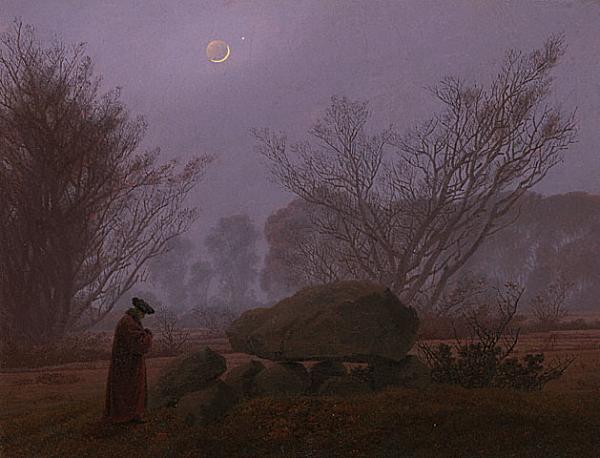
A Walk at Dusk
Caspar David Friedrich
(September 5, 1774 - May 7, 1840)
_______________________
On not winning the Nobel Prize
Doris Lessing
Nobel Lecture December 7, 2007
(....)
Writing, writers, do not come out of houses without books.
There is the gap. There is the difficulty.
(....)
Writers are often asked, How do you write? With a wordprocessor? an electric typewriter? a quill? longhand? But the essential question is, "Have you found a space, that empty space, which should surround you when you write?" Into that space, which is like a form of listening, of attention, will come the words, the words your characters will speak, ideas - inspiration.
If a writer cannot find this space, then poems and stories may be stillborn.
When writers talk to each other, what they discuss is always to do with this imaginative space, this other time. "Have you found it? Are you holding it fast?"
(....)
We own a legacy of languages, poems, histories, and it is not one that will ever be exhausted. It is there, always.
We have a bequest of stories, tales from the old storytellers, some of whose names we know, but some not. The storytellers go back and back, to a clearing in the forest where a great fire burns, and the old shamans dance and sing, for our heritage of stories began in fire, magic, the spirit world. And that is where it is held, today....(more)
_______________________

John Cage
b. September 5, 1912
collecting mushrooms
photo - William Gedney
John Cage at ubu web
"The right to be myself, as long as I live! As if I were a sound.":
Postmodernism and the Music of John Cage
Nancy Perloff
The Music of Verbal Space: John Cage's "What You Say"
Marjorie Perloff
_______________________
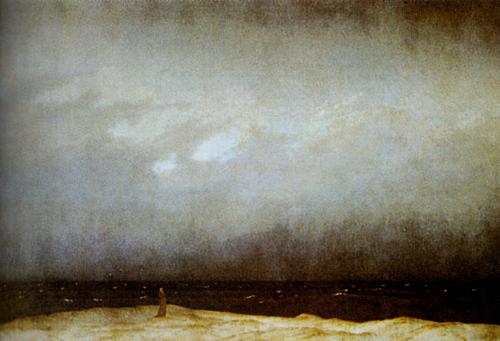
The Monk by the Sea
Caspar David Friedrich
_______________________
Lucretius and the Wilderness
larval subjects
(....)
All too often we get the sense that many philosophers are civil servants acting on behalf of the state, superstition, and ideology, yet with Lucretius we get the sense that we are before truth– or at least the germinal hypothesis that would lead us truth –and the seeds of a genuinely emancipatory project. That emancipatory project unfolds at the psychological level striving to free us from fear and to lead us to peace of mind, that unfolds at the social level, emancipating us from superstition and ideology, and that unfolds at the political level emancipating us from despots and unjust systems.
Yet perhaps most of all the wonder that Lucretius instills lies in the way he transforms the ordinary and familiar into a question. For Lucretius there is just atoms and void. With this hypothesis all things are to be explained.(....) (....)
... To be a Lucretian today– as in the case of being a disciple of any philosopher –is not to follow him in all he says and in all his explanations. One need not hold, for example, that atoms are hard, indivisible, simple units, nor that bodies secrete simulacra (photons of light bouncing of bodies will do). No, to be a Lucretian is to follow the materialist, posthumanist, and naturalist spirit of his thought, the mode of explanation it entails, and the ethical and emancipatory project that issues from it....(more)
_______________________

John Cage and David Tudor
_______________________
UbuWeb Top Ten - September 2011
Selected by Rebecca Cleman
_______________________
An Essay on Typography
Eric Gill
mediafire pdf

photo - mw
_______________________
Paradigm of the Tinctures
Poems
Steve McCaffery
Images
Alan Halsey
free ebook via Argotist Ebooks.
the figure: viewed from the back
It’s the other side of Summer
in a blown-up world
behind it there’s Caspar David Friedrich
copying the paintings
of Old Masters, sturm und drang with
a pair of scissors for comfort.
What a splendid air of security!
The writing that knows the lovers of strange landscape
is hardly visible,
shivers to the shape of
a disappearing allegorical vocabulary.
Let’s go there and be read
in a morning fog
ask a tree to dance with us
in the sentence
“I have to stay alone.”
_______________________
Labor’s Dwindling Share of the Economy and the Crisis of Advanced Capitalism
Charles Hugh Smith
Advanced Capitalism is broken for reasons conventional economics cannot dare recognize, because it would spell the end of its intellectual dominance and the end of the entire post-war political-economic paradigm that feeds it.
via Phil Cubeta
_______________________
Which Scandal?
George Scialabba
Rupert Murdoch may be exceptionally greedy and unscrupulous. But if it weren't him corrupting American democracy, it would be someone else. The incentives are too great, the laws and their enforcement too feeble, the ideological climate too favorable. The longstanding right-wing campaign against all things public has had exactly this purpose: to turn journalism, as well as education, health care, the criminal justice system, and national security, into mere profit centers. Murdoch's current misfortunes may slow this Great Degradation, but not by much.
_______________________
Reading Rancičre: Critical Dissensus
ed. Paul Bowman and Richard Stamp
google books
Political dissensus is not a discussion between speaking people who would confront their interests and values. It is a conflict about who speaks and who does not speak, about what has to be heard as the voice of pain and what has to be heard as an argument on justice. And this is also what 'class war' means: not the conflict between groups which have opposite economic interests, but the conflict about what an 'interest' is, the struggle between those who set themselves as able to manage social interests and those who are supposed to be only able to reproduce their life.
- Jacques Rancičre
via Thivai Abhor
_______________________

Oskar Schlemmer
b. Sep. 4, 1888
_______________________
Eight Anagrams after OuLiPo
Kevin McFadden
archipelago
Variations Along the Slippery Slope
(Etymological Ridge)
DANGER: torture-wheel from God
Geometer. DANGER: world of hurt,
of grudge, rant, theorem. Lord, we
err, the twofold garden/morgue.
Deer regret word-of-mouth, lang-
uage of Grendel, rod, term, worth,
the deferred growl or moan, gut-
felt word. DANGER: rogue mother
tongue, the germ-drawl of order,
lewd tome. DANGER: error fought
(wrought) from degenerate lord.
We get our danger from the lord.
Kevin McFadden at Agni and the Poetry Foundationmore poetry by Kevin McFadden
_______________________

Antonin Artaud
(September 4, 1896 – March 4, 1948)
Surrealism is above all a state of mind, it does not advocate formulas. The most important point is to put oneself in the right frame of mind. No Surrealist is in the world, or thinks of himself in the present, or believes in the effectiveness of the mind as spur, the mind as guillotine, the mind as judge, the mind as doctor, and he resolutely hopes to be apart from the mind. The Surrealist has judged the mind. He has no feelings which are a part of himself, he does not recognize any thought as his own. His thought does not fashion for him a world to which he reasonably assents. He despairs of attaining his own mind.
-
Antonin Artaud
Julia Kristeva speaks of Antonin Artaud
An interview with Julia Kristeva Shan Benson filmed by the director of Irish videos Cathy Vogan in 1996 at Sydney Festival devoted to "100 years of cruelty" (28'30).
The Theater and Its Double
Antonin Artaud google books
_______________________

photo - mw
_______________________
First you call for an unnamed disciplinary sovereign to safeguard the traditions of the disciplinary nation. Or you harrumph that changes have taken place in your discipline and your institution without your consent, without a plebiscite. When the restoration of your treasured norms by sovereign fiat doesn’t follow, you can begin beating the O Tempora O Mores drums, and paint yourself into the margins. From there you can get a pretty clear sighting of a kingdom of unhappy exiles, the Land of Violated Traditions, and should you wish, they’ll be happy to stamp your passport and show you to the refugee camps.
Timothy Burke, Easily Distracted
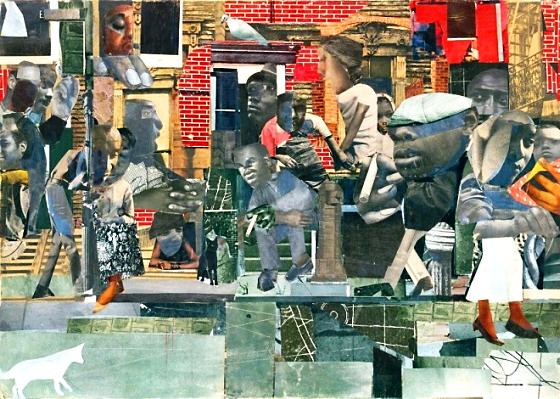
The Dove
1964
Romare Bearden
(September 2, 1911 – March 12, 1988)
_______________________
Tastes, Castes, and Culture: The Influence of Society on Preferences
Ernst Fehr and Karla Hoff
Social Science Research Network (SSRN)
Abstract:
Economists have traditionally treated preferences as exogenously given. Preferences are assumed to be influenced by neither beliefs nor the constraints people face. As a consequence, changes in behaviour are explained exclusively in terms of changes in the set of feasible alternatives. Here the authors argue that the opposition to explaining behavioural changes in terms of preference changes is ill-founded, that the psychological properties of preferences render them susceptible to direct social influences, and that the impact of "society" on preferences is likely to have important economic and social consequences.
_______________________

Sirens Song
Romare Bearden
1977
_______________________
Dominion of Canada
Juan Tovar
translated from the Spanish by Leland H. Chambers
archipelago
(....)
No one knows for certain whether her name was Gabriela, nor his Amado; the original legend prevails here, or rather its ghostly remains in the folds of the old woman’s memory, a garden of mist and lethargy, a fading out to a page almost blank: truly free for the yes of bare feet and needles of hoarfrost, aurora borealis, and a young, pregnant body with the salt of the earth in her veins — what is the sign for that? Down pathways of childhood she searches for it until time to go home. It is her parents’ house and she sets foot in it with a stranger’s shyness. Everything the way it used to be and all deserted until, in a hallway, in front of the door to the room full of toys and trinkets, she finds several children squeezed together on a sofa, and among them she recognizes her brother, who stares at her as at a stranger.
–Sit down here, little girl, he says, making room. My sister Gabriela is going to show us a name, but first the servants get to show off.
–Whose servants?
–The name’s, of course.
–Who are they?
–She makes them out of whatever she finds in there. Straw hat, canvas apron, a spade, a pasteboard Judas face left over from last year’s Easter celebration. The ogre comes out and we ask him, “Are you the Dominion of Canada?” “No,” he answers, “I am merely the last of his servants.” And then the next-to-last comes out, and one by one the rest, scarier and scarier each of them.
–And the name?
–That comes after the first one.
–Is it the name you said?
–Dominion of Canada is only the name of the name. But hush now, little girl. The door is opening.
The monster appears with a roar and approaches the trembling spectators. He has your eyes, Gabriela, your father’s eyes — an emissary of death or a traveler used to such ways, he touches you with his cold hand. We are dreaming, sister; it’s all part of the game, something that happens. The light crystallizes in the sky and the leaves of grass are glass shards, pain of childbirth.
–Are you the Dominion of Canada?
–He is the forest, the girl is told. He is all the trees in the forest, the fire and whoever gazes into it, the fruit of your womb, the stream of free action. Shall we follow it?
...(more)
_______________________

somewhere in the Tay watershed
photo - mw
_______________________
On All Kinds of Roads
Interview with Anne Waldman
logos
Kurt Jacobsen
... I’d like to invoke the Native American Navajo because their word for road is used as a verb. Their whole relationship to road has to do with how you travel it, who you are traveling it with, what the environment might be, where you’re headed, in what direction, the weather and so on. So there are many different forms of that word, and to give one example of how it is used as a verb form, they say: “it roads me away,” So I invoke that sense of the particulars of that kind of literal travel and what that has meant historically in terms of diasporas, in terms of the migrations of immigrants coming to this country with a real vision of finding the promised land. So there’s a little bit of background: think of the road as a kind of zone and a site of incredible diversity.
(....)
For me there is a poesis, a poetics, around the trope of the road that is embedded within many life experiences of the people I’ve been close to....(more)
Special Section - The American Road Logos a quarterly journal of modern culture, politics and society
2011: vol. 10, issue 3

photo - mw
_______________________
Alterity
Jacek Dehnel
Translated from Polish by Benjamin Paloff
The rules are clear: no place to mill about.
There’s no such thing as comfort for unhappy men.
He leaves the tall house and passes through the eye
of the blizzard, insignias unpinned, his neck
exposed by a collar haphazardly removed.
In silence. No one rings him, not even
from his pockets, no sharp objects or dimes,
his shoes unlaced, his loops without a belt.
He’s free to think—or whatever else he pleases,
no one cares where he goes or why—
of Roland, Tristan, Medea, or Lucia
di Lammermoor, in crinoline, but right away
it’s “You hysterical singer, with your terrier
(in an apartment sealed from top to bottom),
with your soda syphon, all made up
for an empty room. An empty, empty room.”
...(more)
Words without Borders
September 2011: Homage
_______________________

Charing Cross Road
Wolf Suschitzky
1937
_______________________
Academic publishers make Murdoch look like a socialist
Academic publishers charge vast fees to access research paid for by us. Down with the knowledge monopoly racketeers
George Monbiot
Who are the most ruthless capitalists in the western world? Whose monopolistic practices make Walmart look like a corner shop and Rupert Murdoch a socialist? You won't guess the answer in a month of Sundays. While there are plenty of candidates, my vote goes not to the banks, the oil companies or the health insurers, but – wait for it – to academic publishers. Theirs might sound like a fusty and insignificant sector. It is anything but. Of all corporate scams, the racket they run is most urgently in need of referral to the competition authorities....(more)
Why has this market been able to resist the tide of change sweeping through the rest of the industry, and what will it take to finally disrupt it?
-
Mathew Ingram
via Tom Matrullo
_______________________
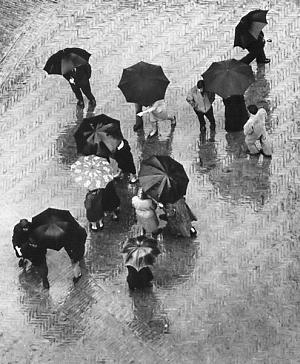
San Gimignano,Tuscany,
Wolf Suschitzky
1965
_______________________
excerpts from The Saturation Project
Christine Hume
Hum
(....)
When I turned twelve, my family moved into the woods. I did not have one friend that long summer. There are other details, but the point is: I developed a barely audible hum. Distressed, I rang out. A tiny, high diva voice emerged in soft spectacle from my throat. Mostly I did not know I was sounding off until someone called my attention to it. My hum asked for no answer. Yet my mother and brother noted my psychological leakage in annoyance — “knock off the lame tune.” Sometimes strangers cocked their heads at me with a worried look. The excess of it attracted judgment. The ambient sonority of it — wasp, bee, and fly hum — drove any potential companions away.
This hum was an unknowing song of waiting, a refrain attempting to ward off chaos by creating soothing rhythm. To make something out of nothing. A pinch in my throat, a thing stuck there that I was trying to dislodge in order to be. It was like a cry of being born — “the sudden expansion of an echo chamber” as Jean-Luc Nancy describes — but a slow leak instead of an announcement. I was someone coming to herself slowly by resounding, by opening up into the color and texture of myself. Reverberation is what sound and color share; when they marble, it’s resonance....(more)
Cerise Press Vol. 3 Issue 7
a journal of literature, arts & culture
_______________________
Propoganda
Propaganda
The Formation of Men's Attitudes
Jacques Ellul
(1962/1973)
translated by Konrad Kellen and Jean Lerner
pdf available at Monoskop
Jacques Ellul's view of propaganda and his approach to the study of propaganda are new. The principal difference between his thought edifice and other literature on propaganda if that Ellul regards propaganda as a sociological phenomenon rather than as something made by certain people for certain purposes. Propaganda exists and thrives; it is the Siamese twin of our technological society. Only in the technological society can there be anything of the type and order of magnitude of modern propaganda, which is with us forever; and only with the all-pervading effects that flow from propaganda can the technological society hold itseif together and further espand.
Most people are easy prey for propaganda, Ellul says, because of their firm but entirely erroneous conviction that it is composed only of lies and "tall stories" and that, conversely, what is true cannot be propaganda. But modern propaganda has long disdained the ridiculous lies of past and outmoded forms of propaganda. It operates instead with manv different kinds of truth— half truth, limited truth, truth out of context. Even Goebbels always insisted that Wehrmacht communiqués be as accurate as possible.
- Konrad Kellen
_______________________

photo - mw
_______________________
Looking Forward to the History of the Tea Party
Joseph Lowndes
The challenge conservatives faced in achieving ideological hegemony was how to fashion a political identity through which they could equate unfettered private accumulation with a greater national good. The Right was ultimately able to generate a populist conservatism by claiming to stand for honest, hardworking whites who were beset by an alliance of liberal establishment elites above and disruptive, parasitic blacks below. With the election of a black Democratic president, conservative populist anger has moved beyond the demonization of people of color to the demonization of the public realm as such. To be sure, this is precisely the direction FreedomWorks, Americans for Prosperity, and other wealthy, corporate entities associated with the Tea Party movement have attempted to steer it. Their vision is neither populist, national, nor racial, but rather directed toward seizing ever greater state resources while radically reducing what remains of democratic rule. Yet while these economic libertarians want to avoid cultural questions in their quest to dismantle the welfare state in its entirety, they still require a language of nation or community to advance their political aims. As they seek to defend the very rich and demand austerity measures for an increasingly vulnerable populace, this becomes increasingly difficult to do....(more)
Logos a quarterly journal of modern culture, politics and society
2011: vol. 10, issue 3
_______________________
Debt, Slavery and our Idea of Freedom (Part 1)
interview with David Graeber
author of Debt: The First 5,000 Years
... there is an irony in thinking of a promise made by a state to pay a debt as something absolutely sacred. After all, a debt is just a promise, and politicians make all sorts of different promises. They break most of them. So why are these promises the only ones that they can’t break? It is considered completely normal for someone like Nick Clegg to say, ‘well of course we promised not to raise school fees. But that’s unrealistic.’ ‘Unrealistic’ here means ‘obviously there’s no possibility of breaking my promises to bankers, even those linked to banks we bailed out and in some cases effectively own’. It’s striking that no-one ever points that out. Why is a promise made by a politician to the people who elected him considered made to be broken – it isn’t “sacred” in any way – whereas a promise the same politician makes to a financier is considered the “honour of our nation”? Why isn’t the “honour of our nation” in any way entailed in keeping our promises to people to provide healthcare and education? And why does everyone just seem to accept that, that this is just “reality”?
And why do you think that is?
Because the latter promises are not typically framed in the language of ‘debt’. The language of debt is not an economic one; it’s a language of morality. It has been used for thousands of years by people in situations of vast inequalities of power. If you have a situation of complete inequality, particularly violent inequality – if you’ve conquered someone, or if you’re a mafioso extracting protection money – then framing the relationship in terms of debt makes it seem as though the extractors are magnanimous and the victims are to blame. “Well, you owe me, but I’ll be a nice guy and let you off the hook this month…” Before long the victims come to seem almost generically morally at fault by the very terms of their existence. And that logic sticks in people’s minds – it’s incredibly effective. Not universally effective, because it’s also true that the vast majority of revolts, insurrections, populist conspiracies and rebellions in world history have been about debts. When it backfires, it blows up in a big way. But nonetheless, that’s what people almost invariably do when they’re imposing a situation of complete inequality.
The irony of course is that when dealing with each other, rich and powerful people know that debts aren’t “sacred”, and they rearrange things all the time. They are often incredibly forgiving and generous when dealing with each other. The idea of the sacredness of debt is chiefly applied when we are talking about different sorts of people. Just as rich people will come to the aid of other rich people, so poor people also will bail each other out – they’ll make ‘loans’ that are really gifts, and so on. But when you’re dealing with debts owed by people without power to people with power, suddenly the debt becomes sacred and you can’t even question it....(more)
( Part 2)
|

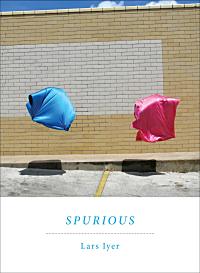


 The Age of Briggs & Stratton
The Age of Briggs & Stratton







































